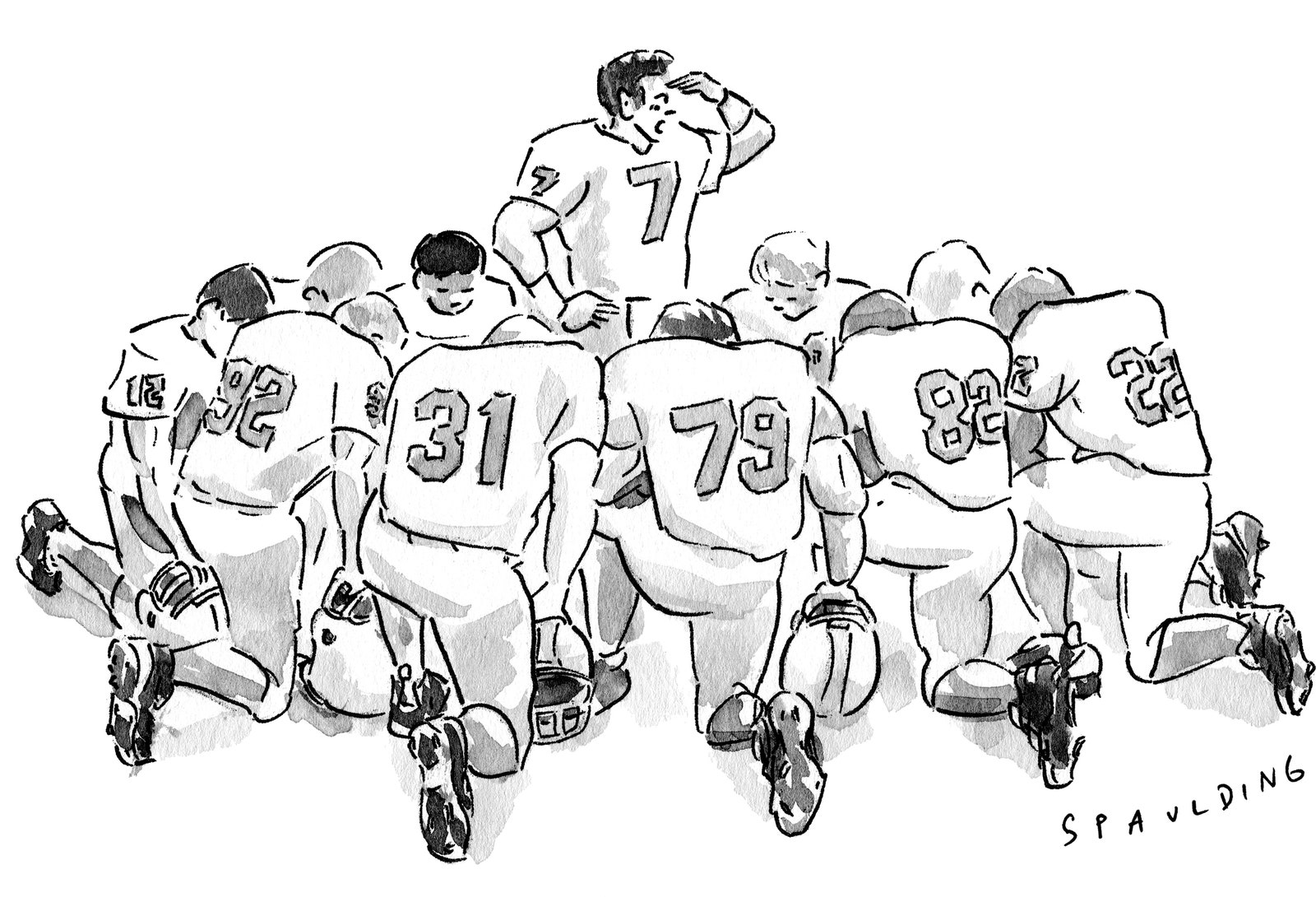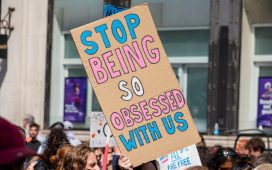After love, money is perhaps the novel’s favorite subject, especially the novel in its most hopelessly (or, depending on your taste, endearingly) bourgeois form. Whether handled with Trollope’s irony or Fitzgerald’s romanticism, money in fiction challenges love’s delusion that our lives are defined by anything other than the hardest of practicalities, and that’s one reason money versus love is a venerable theme. But what if the two ostensibly opposing forces collapsed into each other, forming a sort of black hole? That would be enough to drive anyone around the bend, which is just what happens to Brooke Orr, the protagonist of Rumaan Alam’s fourth novel, “Entitlement.”
Alam is best known for “Leave the World Behind” (adapted into a film by Netflix), in which a Black couple bearing news of a mysterious catastrophe arrive at the Long Island summer house they’ve rented out to a white family for the week. Although that novel’s characters are familiar types (the Karen-ish white lady in her forties and her inept professor husband; the no-nonsense Black financier), Alam’s observation of the attitudes and trappings of contemporary upper-middle-class American life has a delicious precision. His shopping lists are as vivid as poems. “Entitlement,” which benefits from that precision, features themes Alam has touched on before: transracial adoption; the rivalrous friendships of ambitious young New Yorkers and the wedge that economic disparity drives between them; the complex tissue of privilege and status that makes up cosmopolitan social life. But the tone of this novel grows darker and more claustrophobic than that of any of his previous works, even the apocalyptic “Leave the World Behind.” Never has one of his characters so thoroughly decompensated. Brooke’s fateful move is merely to take a job at a foundation dedicated to giving away the fortune accumulated by an office-supply magnate named Asher Jaffee, but the proximity to so much money unhinges her.
Brooke has enjoyed what a friend from Vassar regards as an enviable upbringing enriched by “the secret weapon of a chic mother with a Manhattan apartment.” The Black adopted daughter of an unmarried white lawyer running an organization dedicated to reproductive justice, Brooke has grown up under the hovering benevolence of a trio of glamorous “aunties,” friends with whom her mother formed “what they would have called a family.” Her younger brother, who is white but also adopted, has flourished under these conditions. Brooke, however, can’t figure out what to do with herself. Having spent nine years teaching at a charter school in the Bronx, she takes a job at the Asher and Carol Jaffee Foundation. The decision disappoints her mother, who now considers Brooke a glorified secretary. Asher, eighty-three and semi-retired, is himself at loose ends. He sees Brooke (“Black, gorgeous, serious, passionate”) as “the sort of woman he wanted at the foundation, the sort of woman he wanted working in his name,” and decides to make her his protégée.
Significantly, Alam sets “Entitlement” in 2014, a period that Brooke regards as “a boring moment in the world’s long history, Obama’s placid America.” Unusual prescience on her part or an authorial intrusion from the vantage of our less orderly world? This isn’t the only such ambiguity in the novel, which flits from one character’s perspective to another’s so quickly that it’s often unclear whose impression the reader is glimpsing. When Brooke is out at a bar with her friends, discussing her new gig, the narration reads, “Had Brooke chosen both teaching and her job at the foundation because her mother felt that the only useful work was selfless? Children never clearly saw the source of their opinions, ideas, habits, biases.” Are these Brooke’s musings, or one of her friends’, or the author’s? The uncertainty surrounding the origin of such thoughts gives the novel a jangly quality, disorienting at first but also a simulacrum of Brooke’s too permeable mind.
Brooke has no father, and Asher’s beloved daughter, his only child, died at her desk at Cantor Fitzgerald in the 9/11 attacks. The relationship between Brooke and her new employer begins promisingly. Asher takes her out to lunch, and she suggests that they skip his customary steak house (Keens, of course; Alam’s cultural signifiers are always on point) in favor of a diner. Afterward, Asher playfully sends Brooke a check for the difference in cost between a steak lunch and the diner sandwich, but she tries to return it, saying that the gift doesn’t seem “ethical.” She tells him that she doesn’t need his money, and he replies, “But the question is whether or not you deserve it.” Then he says something that lodges in Brooke’s psyche, worming its way ever deeper: “If you don’t ask for what you’re owed, who can you blame when you fail to get it?”
Under Asher’s wing, Brooke tags along when he meets with the Ford Foundation, rides around in the cocoon of a chauffeured Bentley, and advises her boss to buy an eight-hundred-and-fifty-thousand-dollar Helen Frankenthaler painting for his wife’s birthday. Kim, one of her old college friends, comes into a big inheritance and buys an apartment in the West Village with a fabulous view. Echoing a dynamic in Alam’s first novel, “Rich and Pretty,” Kim badly wants to preserve her bond with Brooke and the third member of their trio, Matthew. It’s possible to pretend that they all still live the same lives while meeting for drinks or brunch, but real estate puts the lie to such sentimentality. The splendor of that new apartment betrays just how wide the economic gulf between Kim and the other two has become. Like the pretty but relatively poor friend in “Rich and Pretty,” Kim’s companions have already begun to drift away. Matthew, a project manager at an ad agency, has the kind of job that doesn’t pay handsomely but carries some status and lets him rub shoulders with the truly affluent. It also provides a constant, nettling reminder of what he doesn’t have. People like him and Brooke, Matthew argues, care the most about money, because “we know what money can do. We know how we’ll never get our hands on it, but we know it could make us free.”
Brooke can’t afford to buy any apartment, but that doesn’t stop her from asking Kim’s real-estate agent to show her a few options. She sees a place on Twenty-ninth Street, a plausible address, not too extravagant, but nevertheless out of her reach. She falls in love. Every New Yorker knows that every New Yorker obsesses over real estate, but Brooke takes her passion even further. When Asher or her mother asks her about boyfriends or marriage, she replies that she has no interest in either; she wants to marry the apartment. Brooke believes that the apartment will remake her in much the same way love is supposed to. It will give her everything she needs, she insists—it will become “a self transubstantiated into walls and floors.” And, unlike a lover or a husband, the apartment is secure. It can be bought. It is love and money in a single package. What could be simpler, or more foolproof?
“It didn’t matter at all, somehow, that she didn’t have the money, the letter from the bank, the plan,” Brooke decides. “That would come in time.” Doesn’t she deserve the apartment? And, if she doesn’t ask for it, whom can she blame when it fails to materialize? Matthew finds her transfigured, strangely beautiful and animated. She has the certainty of the manic, or the converted. She has become a member of the elect. Once, she was one of those people who thought that “money, like grace, would be accrued.” But her association with Asher has convinced her that she is now someone to whom money, like grace, will just happen.
History has made Brooke’s optimism anachronistic, but, during the complacency of Obama’s second term, her belief that the deserving will be rewarded would have seemed almost credible, if you squinted. She walks streets that have been plastered with “HOPE” banners. An ambient faith in progress, which Alam expertly conveys, undergirds Brooke’s sense of the world. Her job, after all, is to bless those people found worthy of the Jaffee Foundation’s largesse, to supply the material for making their dreams come true. Key to Brooke’s sense of her own chosenness is her lofty mission and the ritualized language that comes with it, bland philanthropic palaver about making the world a better place. “I consider this work a privilege,” she solemnly tells Asher’s longtime assistant, when the woman catches her printing out a dodgy letter on foundation stationery to send to a mortgage-loan officer. “It’s demanding but understand—it makes me feel good.” Brooke is perfectly sincere, even if she’s no longer the same woman who tried to return that check to her boss. Captivated by her own virtue, sheltered in the aura of Asher’s extraordinary wealth, she has come to consider data (for example, the actual amount of her salary) to be little more than a transitory obstacle to getting what she wants and what she so clearly ought to have.
Brooke’s search for an ideal beneficiary for the foundation takes her to the Throop Community School, a one-woman operation in Brooklyn that teaches African dance and drumming to neighborhood kids. Here, she is sure, she will find the “story” that Asher wants to hear, a soulful story about “Black kids with Black problems.” The founder and head of the school, an older woman, baffles Brooke by rejecting the opportunity. “You come here and tell me that I must need something,” she says to her young would-be benefactor. “But, sister, I did not ask you here. And I did not tell you that we were in need.” More money might lead to superficial improvements, but, in this woman’s experience, “it comes at a cost” she isn’t willing to pay. Her daughter proves more receptive, and brings a candidate for the City Council along to a meeting. To Brooke’s displeasure, the candidate appeals to their shared identity as Black women. As far as she’s concerned, that identity has value only when she can use it to her own advantage: “Brooke was most passionate about Black art, Black lives, Black matters, when her boss asked her to be.” She bristles when her race is invoked as an obligation.
In “Entitlement,” as in “Leave the World Behind,” Alam tends to brush against race more often than he tackles it directly. As Brooke sees it, she and the candidate don’t have anything in common. One of them is “a church girl from Brooklyn, with a vast network of cousins and vague relations,” and the other “a private-school kid from Manhattan with a white mother, a white brother, many white aunties.” Class, it seems, is what Brooke believes defines her, and she and the candidate don’t come from the same place. Yet even Brooke’s long-standing loyalties are fraying. When her mother telephones with the news of the sudden death of one of her aunties, Brooke finds herself unmoved. The auntie—who had “danced with Albert of Monaco and dined with Karl Lagerfeld” before being laid off from her “chic magazine gig” and forced to take a receptionist’s job at a suburban orthodontist’s office—mostly serves as a cautionary tale. Brooke vows that she will not follow the same path: “She would be interesting, she would be good, she would be successful, perhaps with luck she would be free.” But she is more similar to her fallen auntie than she wants to admit. Everything she now thinks she has is precarious, dependent on her employer’s favor.
For some, money means luxury, power, or admiration. For Brooke, it means freedom, specifically freedom from the claims of anyone else, with the exception of Asher Jaffee. What she finds most enviable about her boss’s forty-seventh-floor apartment on Central Park West is its hermetically sealed removal from the rest of the city. The New York City of “Entitlement” is haunted by a criminal, dubbed the Subway Pricker by the press, who, unseen, jabs women with a hypodermic needle in crowded trains. At the beginning of the novel, Brooke scoffs at the idea, writing the panic off as mass hysteria, but by the end she believes that she, too, has been pricked, a victim of the anonymity and indignity of the crowd. The allure of the Twenty-ninth Street apartment is curled within the word itself: its apartness. When the loan officer calls to request more documentation of Brooke’s finances, she informs the woman, “There are those who do not live among the rest of us,” and to whom customary standards and rules do not apply. She’s a “good person.” Why shouldn’t she be one of the lucky few?
Brooke is losing it, but she’s also just taking the rich at their own word. Aren’t they always proclaiming that they deserve what they’ve got, that their money testifies to their worth? By that logic, the unmoneyed worthy, too, must be due their portion. The noxious effect of great wealth consists not just of the envy and temptation it inspires but also of the ideas it emanates like fumes. Alam chronicles Brooke’s slow poisoning so deftly it almost seems possible that she’ll turn positive thinking and fearless self-assertion into some version of the American Dream. That is, after all, how rich people like to say it works. Jay Gatsby isn’t around to warn her off. Sure, love can hurt. But money, and the people who have it, will wreck you every time. ♦









